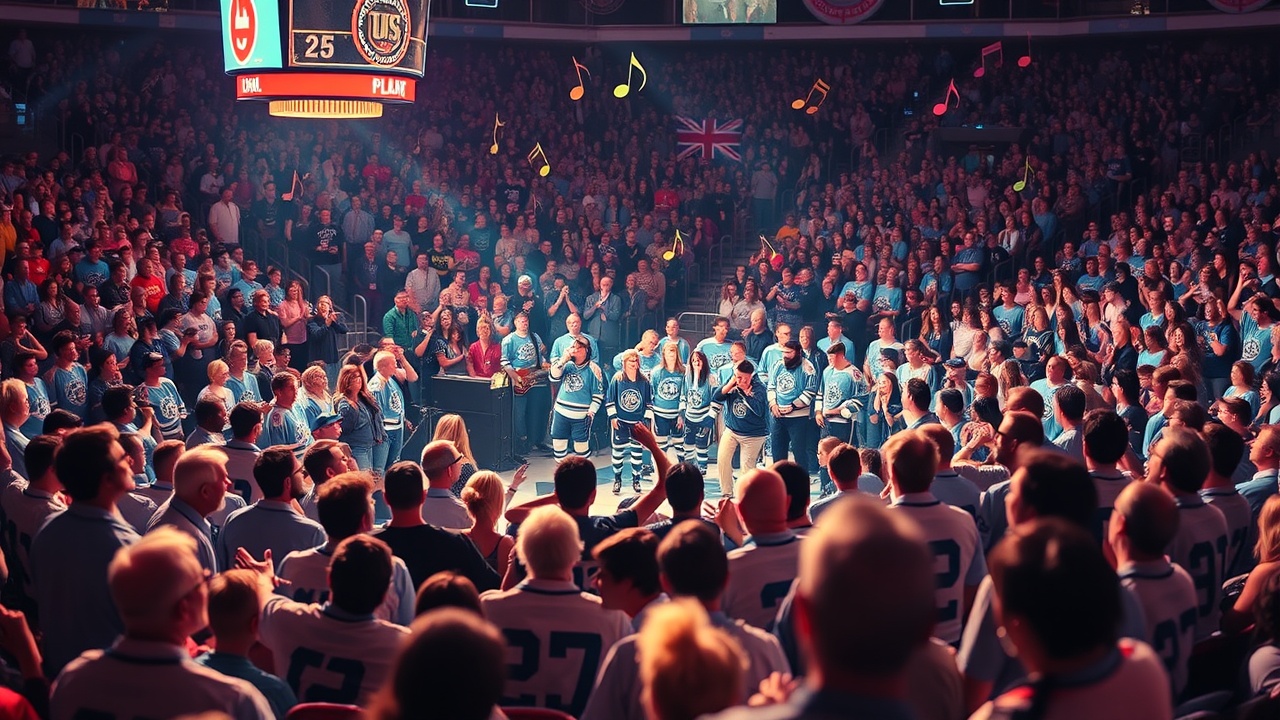Reviving a Canadian Anthem
In the picturesque surroundings of the Credit Valley Golf and Country Club in Mississauga, Ontario, Gil Moore prepared for a putt on the 18th hole, enjoying a moment of privacy he didn’t anticipate—until a fellow golfer recognized him. Just before he took his shot, the fan shouted a line that resonated with Moore, echoing times from decades past: “Just lay it on the line, Gil!”
Nostalgic Connections
This encounter struck a nostalgic chord for Moore, the veteran drummer of Triumph, a Canadian rock group known for their powerful sound and classic hits. One of their most memorable tracks, “Lay It On The Line,” recorded in 1979, was conceived in an astonishingly brief session of just 15 minutes. The band couldn’t have predicted at the time of its creation that this song would eventually become an anthem for hockey fans across Canada, especially during the Stanley Cup playoffs.
Connection to Hockey
The connection between the band’s music and hockey was reignited in April during the 2024-25 NHL postseason, when Rogers Communications launched a major advertising campaign on Sportsnet, a channel that holds broadcasting rights for the league. The ad featured “Lay It On The Line” prominently, a strategic choice meant to resonate with Canadian hockey fans as they rallied behind their teams.
“Early on, we said we really wanted our campaign idea to be: ‘This is our game,’”
remarked Terrie Tweddle, Rogers’ chief brand and communications officer. The use of Triumph’s iconic song added to the energy and positivity surrounding the playoffs, making it a fitting component of their messaging.
Resurgence of a Classic
As a result of this exposure, the song experienced a resurgence, holding the number one position on Shazam’s Top 200 Canadian chart for three consecutive weeks. It quickly became not only a rallying cry for hockey enthusiasts but also a fixture on social media platforms like TikTok, where fans utilized it in memes and tributes. The band enjoyed further recognition when they were invited to perform at a free concert presented by the NHL in Edmonton, coinciding with Game 2 of the Stanley Cup Final.
Reflections on Music and Unity
Moore, reflecting on this unexpected revival, shared,
“Canadians can unite and relax for a little bit and enjoy hockey. It’s a really special thing… music’s used as a tool to bring people together, that’s what’s special to me.”
The beginnings of Triumph, however, were far from the glitz of stadiums and arenas. In the 1970s, Moore and bassist Mike Levine were part of a different band, Abernathy Shagnaster’s Wash & Wear. During that period, they were uncertain about the music industry, especially the prospects for Canadian bands on a global scale. Yet, through persistence and a shared love of rock music, they formed Triumph by bringing in talented guitarist and vocalist Rik Emmett, solidifying the band’s powerhouse trio.
Legacy and Humor
Their breakthrough came with the album “Just A Game,” where “Lay It On The Line” stood out. Moore recalled how Emmett had largely crafted the song before it ever reached the rehearsal rooms, culminating in a quick assembly that highlighted the effortless quality of well-composed music. Though it charted modestly on the Billboard Hot 100, its cultural significance has only grown, especially now during its revival.
As Triumph’s legacy faces a newfound appreciation, there’s also amusement in the band’s rejuvenation. Moore chuckled at a golfer’s comment asking if he was tired of hearing his classic shouted back at him. His witty response underscored the irony—
“I was sick of it 30 years ago from playing it every night.”
With a mixture of nostalgia and humor, Triumph is embracing this chapter of their history, thankful for what appears to be an unplanned second act triggered by their connection to hockey and the spirit of Canadian unity.
A Cultural Moment
This unexpected resurgence encapsulates not just personal milestones for Moore and his bandmates but also a larger cultural moment, where sports and music intertwine to create joy and a sense of belonging among fans across the country.




